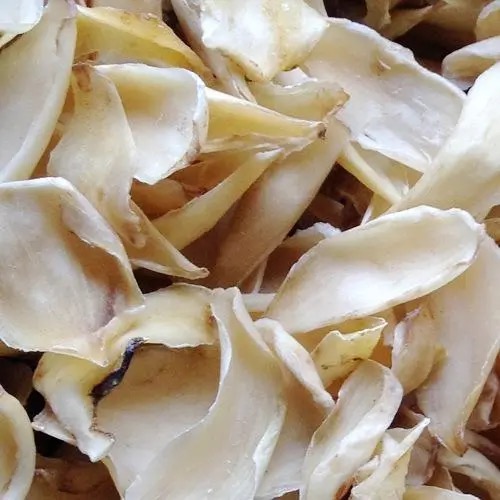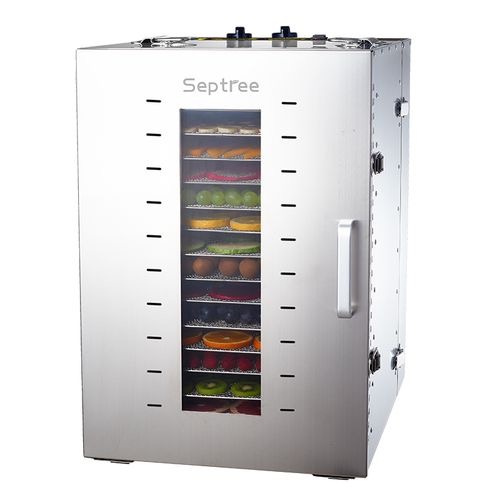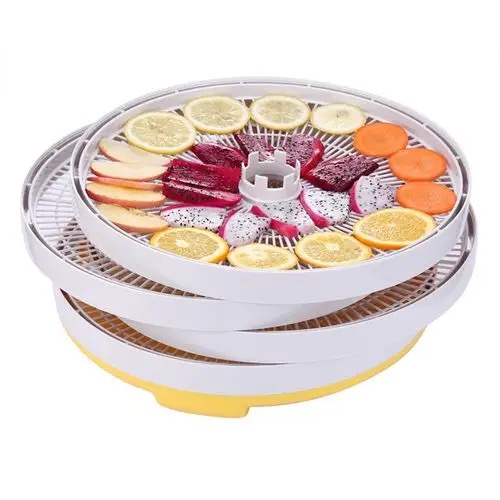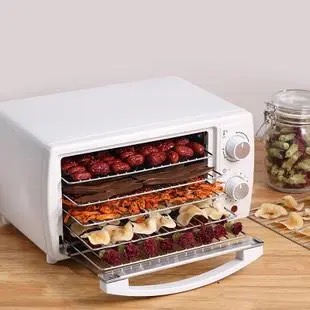
Content Menu
● Introduction
● Understanding Food Drying
● Heat Pump Dryers: A Modern Solution
● Applications of Heat Pump Dryers in Food Industry
● Choosing the Right Food Drying Machine
● Maintenance and Care for Food Dryers
● Conclusion
● Frequently Asked Questions
>> 1. What are the benefits of using a heat pump dryer for food?
>> 2. How does food drying affect nutritional value?
>> 3. Can I use a heat pump dryer for all types of food?
>> 4. What is the difference between a heat pump dryer and a traditional dehydrator?
>> 5. How do I clean and maintain my food dryer?
Introduction
Food preservation has been a crucial aspect of human survival and culinary culture for centuries. Among various methods, food drying stands out as one of the oldest and most effective techniques. With advancements in technology, heat pump dryers have emerged as a revolutionary solution for food drying, offering energy efficiency and superior quality preservation. This article explores the science of food drying, the benefits of heat pump dryers, and how they are transforming the food industry.

Understanding Food Drying
Food drying is a process that removes moisture from food, inhibiting the growth of bacteria, yeasts, and molds. The science behind this process involves reducing the water content to a level where microbial activity is significantly slowed down. The benefits of dehydrating food include extended shelf life, enhanced flavors, and the convenience of storing food without refrigeration.
Common methods of food drying include:
1. Sun Drying: Utilizing sunlight to dehydrate food, often used in warmer climates.
2. Air Drying: A natural method that relies on airflow to remove moisture.
3. Oven Drying: Using an oven to dry food at low temperatures.
4. Dehydrators: Specialized machines designed to circulate warm air around food, ensuring even drying.
Heat Pump Dryers: A Modern Solution
Heat pump technology represents a significant advancement in drying methods. Unlike traditional dryers that expel hot air, heat pump dryers recycle air within a closed system. This process not only conserves energy but also allows for precise temperature control, which is essential for preserving the quality of food.
Heat pump dryers work by extracting moisture from the food and transferring it to a condenser, where it is collected as water. This method is particularly beneficial for drying delicate foods, as it operates at lower temperatures, preventing nutrient loss and maintaining flavor.
Applications of Heat Pump Dryers in Food Industry
The versatility of heat pump dryers makes them suitable for various applications in the food industry. Commercial food processors utilize these machines to efficiently dry large quantities of fruits, vegetables, and meats, ensuring consistent quality and taste. For small-scale producers and home users, heat pump dryers offer a practical solution for preserving seasonal produce, making it possible to enjoy homegrown flavors year-round.
Case studies highlight the success of heat pump dryers in different settings. For instance, a local farm that adopted heat pump technology reported a 30% reduction in energy costs while increasing the quality of their dried fruits, leading to higher customer satisfaction and sales.

Choosing the Right Food Drying Machine
When selecting a food dryer, several factors should be considered:
1. Capacity: Depending on the volume of food to be dried, choose a machine that meets your needs.
2. Energy Efficiency: Look for models that utilize heat pump technology for lower energy consumption.
3. Versatility: Some machines offer multiple settings for different types of food, enhancing usability.
Comparing heat pump dryers with traditional dehydrators reveals significant advantages. Heat pump dryers are generally more energy-efficient, operate quietly, and provide better control over drying conditions, making them a superior choice for both home and commercial use.
Maintenance and Care for Food Dryers
To ensure optimal performance, regular maintenance of food dryers is essential. Best practices include:
1. Cleaning trays and the interior after each use to prevent residue buildup.
2. Checking for blockages in air vents and ensuring proper airflow.
3. Following the manufacturer's guidelines for maintenance and troubleshooting common issues.
Conclusion
Heat pump dryers are revolutionizing the way we preserve food, combining energy efficiency with high-quality results. As technology continues to advance, these machines will play an increasingly vital role in both home kitchens and commercial food processing facilities. By embracing heat pump technology, we can enjoy the benefits of dried foods while minimizing our environmental impact.

Frequently Asked Questions
1. What are the benefits of using a heat pump dryer for food?
Heat pump dryers are energy-efficient, preserve food quality, and can be used in various settings without the need for ventilation.
2. How does food drying affect nutritional value?
Proper drying methods can retain most nutrients, making dehydrated foods a healthy option.
3. Can I use a heat pump dryer for all types of food?
Yes, heat pump dryers can effectively dry fruits, vegetables, herbs, and even meats.
4. What is the difference between a heat pump dryer and a traditional dehydrator?
Heat pump dryers use a closed-loop system and are more energy-efficient, while traditional dehydrators often require more energy and time.
5. How do I clean and maintain my food dryer?
Regularly clean the trays and interior, check for any blockages, and follow the manufacturer's maintenance guidelines.












